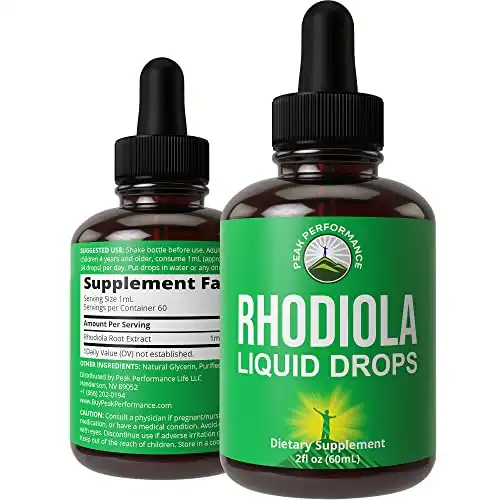
Top 3 Proven Supplements for Anxiety and Stress Management
Some Posts On Our Site May Contain Affiliate Links
Table of Contents
Have you thought about looking at supplements for anxiety and stress management?
Stress is a common part of modern life, and while a small amount of stress can be motivating and actually beneficial for us, chronic stress can have serious health impacts.
Chronic stress can lead to a range of physical and mental health problems, including anxiety, depression, high blood pressure, heart disease, and more. In order to manage stress and protect your health, it’s important to find effective ways to reduce overall stress levels.
How Chronic Stress Impacts Our Health:
Immune System Suppression: Chronic stress weakens the immune system by consistently elevating stress hormone levels like cortisol. This suppression of immune function makes individuals more susceptible to infections and illnesses.
Cardiovascular Health: Chronic stress has a direct impact on cardiovascular health. It increases the risk of cardiovascular diseases, including high blood pressure, atherosclerosis (hardening of the arteries), and heart disease. Stress can contribute to elevated blood pressure and inflammation, both of which are risk factors for heart problems.
Metabolic Effects: Stress can affect metabolism, raising the risk of obesity and type 2 diabetes. The release of cortisol due to stress can lead to weight gain, particularly in the abdominal area, which is associated with a higher risk of metabolic diseases.
Gastrointestinal Problems: Chronic stress negatively affects the digestive system, leading to issues such as irritable bowel syndrome (IBS) and exacerbating inflammatory bowel diseases like Crohn’s disease and ulcerative colitis.
Mental Health: Chronic stress is closely tied to mental health problems such as depression and anxiety. These mental health issues, in turn, are associated with a range of chronic diseases, including heart disease, diabetes, and autoimmune disorders.
Inflammation: Stress triggers chronic low-grade inflammation in the body. This chronic inflammation is a common factor in the development of various chronic diseases, including cancer, autoimmune diseases, and neurodegenerative conditions.
Sleep Disturbances: Stress disrupts sleep patterns, leading to chronic sleep problems like insomnia. Poor sleep quality is associated with an increased risk of a range of health issues, including obesity, heart disease, and mood disorders.
Altered Behavior: Chronic stress often leads to unhealthy behaviors such as overeating, smoking, excessive alcohol consumption, and physical inactivity. These behaviors can contribute to the development of chronic diseases.
Hormonal Changes: Prolonged stress can disrupt the balance of hormones in the body, affecting the menstrual cycle in women and testosterone levels in men. Hormonal imbalances can have various health consequences.

The top three supplements that can help support stress management are:
Ashwagandha is an adaptogenic herb that has been used in Ayurvedic medicine for centuries. It has been shown through many research studies to help reduce stress and anxiety levels, as well as improve mood and cognitive function. A study published in the Indian Journal of Psychological Medicine found that ashwagandha supplementation reduced anxiety levels by 44% in adults with a history of chronic stress. Another study published in the Journal of Alternative and Complementary Medicine found that ashwagandha supplementation improved mental health and quality of life in adults with chronic stress.
Magnesium is an essential mineral that plays a key role in many bodily functions, including the regulation of the nervous system. It has been shown to help reduce stress and anxiety levels, as well as improve sleep quality. A study published in the Journal of Research in Medical Sciences found that magnesium supplementation reduced anxiety levels in adults with mild-to-moderate anxiety. Another study published in the journal PLOS One found that magnesium supplementation improved sleep quality in adults with chronic insomnia.
Rhodiola Rosea is an adaptogenic herb that has been used in traditional medicine for centuries. It has been shown to help reduce stress and fatigue levels, as well as improve mood and cognitive function. A study published in the Nordic Journal of Psychiatry found that Rhodiola Rosea supplementation reduced stress and fatigue levels in adults with stress-related burnout. Another study published in the journal Phytomedicine found that Rhodiola Rosea supplementation improved cognitive function and mood in adults with stress-related fatigue.
Lifestyle modifications to help manage Stress:
- Exercise Regularly: Engaging in physical activity releases endorphins, the “feel-good” hormones, which can help reduce stress and improve mood. Find an exercise you enjoy, such as walking, yoga, swimming, or dancing, and incorporate it into your routine.
- Practice Deep Breathing: Deep, slow breathing activates the body’s relaxation response, calming the mind and reducing stress. Try techniques like diaphragmatic breathing or mindfulness meditation.
- Maintain a Healthy Diet: Eat a balanced diet with plenty of fruits, vegetables, whole grains, and lean proteins. Avoid excessive caffeine, sugar, and processed foods, as they can contribute to stress and mood swings.
- Get Enough Sleep: Adequate sleep is essential for stress management. Aim for 7-9 hours of quality sleep each night to allow your body and mind to recover and recharge.
- Stay Organized: Use planners or digital tools to organize your tasks and responsibilities. Being organized can help you feel more in control and reduce stress related to time management.
- Set Boundaries: Learn to say “no” when necessary and set healthy boundaries in your personal and professional life. Overcommitting can lead to stress and burnout.
- Connect with Others: Social support is vital for stress reduction. Spend time with friends, family, or join social groups to share your feelings and experiences.
- Engage in Relaxation Techniques: Explore activities that promote relaxation, such as taking a warm bath, listening to calming music, spending time in nature, or engaging in a hobby you enjoy.
- Limit Screen Time: Excessive screen time, especially on social media or news outlets, can contribute to stress and anxiety. Set boundaries for screen time and take regular breaks from digital devices.
- Seek Professional Help: If stress becomes overwhelming or persistent, don’t hesitate to seek support from a mental health professional. Therapy or counseling can
If you are experiencing chronic stress, it’s important to talk to your healthcare provider to find the best approach for your individual needs.
Sources and Research:
- Chandrasekhar, K., Kapoor, J., & Anishetty, S. (2012). A prospective, randomized double-blind, placebo-controlled study of safety and efficacy of a high-concentration full-spectrum extract of Ashwagandha root in reducing stress and anxiety in adults. Indian Journal of Psychological Medicine, 34(3), 255–262. doi: 10.4103/0253-7176.106022
- Cooley, K., Szczurko, O., Perri, D., Mills, E. J., Bernhardt, B., Zhou, Q., & Seely, D. (2009). Naturopathic Care for Anxiety: A Randomized Controlled Trial ISRCTN78958974. PLoS ONE, 4(8). doi: 10.1371/journal.pone.0006628
- Eby Jr, G. A., & Eby, K. L. (2010). Magnesium for treatment-resistant depression: A review and hypothesis. Medical Hypotheses, 74(4), 649–660. doi: 10.1016/j.mehy.2009.10.051
- Kasper, S., Gastpar, M., Müller, W. E., Volz, H. P., Möller, H.-J., Schläfke, S., & Dienel






